There is a moment in The French Lieutenant’s Woman when John Fowles, the author/narrator, materialises in a train carriage within the story to watch Charles, the story’s protagonist. I mention this at the beginning of this review for Stephen King’s sixth novel in The Dark Tower series, Song of Susannah, to consider an aspect of the novel that I anticipated in my review for Wolves of Calla. I talked about intertextuality in my previous review, and what I was getting at was that I anticipated this kind of scene, in which Stephen King materialises in his own story. I was quite intrigued that he might decide to do this. Breaking the fourth wall, as this rupture in fiction is known, is usually attempted in artsy plays or by more literary writers like Fowles, or by children’s pantomime players – He’s behind you!
What is King doing? This is fantasy, and fantasy is normally about world building. Fantasy writers go to great lengths to paint their scenery, and loathe to leave the paint brushes and ladders about for just anyone to see. Fantasy is not the art of self-reflexivity but verisimilitude of a kind. Yet part of the quest, so to speak, involves Roland and Eddie tracking King down to try to piece some of the pieces of the narrative puzzle together. This extends to the final section of the novel in which the reader is treated to King’s diary which records the intervening years between Roland and Eddie’s visit and the time they anticipate they will return to this version of reality. We read of King’s success in returning to the writing of the Dark Tower novels, and covering the years until, ultimately, we reach a fictionalised version of the accident with the van that happened to King in real life, which he credits as being a motivating factor to finish the series.
As fictionalised as this account may be, one cannot help feeling that much of what is recounted in this closing section, and much of what he tells Roland and Eddie during their visit, is lifted straight from King’s reality. I know that confusing the Stephen King who wrote these novels and the Stephen King who appears in the stories is naïve. But much of what he has to say I had already anticipated. He addresses the problematic ending of The Waste Lands, for instance, which I made clear in my review of the novel, I thought terrible. I can only imagine that he thinks to record that fans felt the same way because that’s what they actually expressed to him. And some of the difficulties that I anticipated King facing while writing – some of the strained aspects of the novels, the bits that don’t quite work or the clumsy digressions – are alluded to in one way or another in these aspects of the novel.
I wondered, as I read, whether this self-reflexive lifting of the curtain was not another strained attempt to struggle with the story. His fictional self admits he had no idea where the story was going, and I can believe this of the real King’s writing process, too. I remember that when he wrote The Green Mile (which was eventually filmed with Tom Hanks) the book was released in instalments. King claimed to be writing the story even as it was being published, not entirely sure how it would end. I thought the claim a little fanciful at the time. But having seen the way that King’s narratives unfold, grasping at any piece of literary driftwood to build his raft and make the story float, I can well believe it, now. An imaginary (?) letter writer tells the fictional King the story [The Waste Lands] was a cheat
, and sarcastically imagines King thinking what the fuck, I don’t need to strain my brain to write an ending…
It’s all well and good to highlight this issue, as though by speaking about it, it puts the matter to bed – I have nothing to hide,
I hear him intoning – but the problem is, I thought King’s imaginary interlocutor articulated the matter only too well.
And the problem, for me, in reviewing this book, is that while I’m a little cynical about why King has introduced himself so forthrightly into the narrative, and while I’m not sure that it works, I still, nevertheless, see an interesting potential here; what the Dark Tower is, what it means, I think, ultimately rests upon this authorial intrusion.
For Fowles, the authorial intrusion underpinned the very concerns of the story. Fowles was interested in the problem of writing a nineteenth century fiction from the perspective of the twentieth century, and the problems of empiricism. He therefore plays with the nineteenth century narrative voice, and its pretence to omniscience in the context of postmodern relativity. Fowles’s presence in the story and its famous multiple endings deconstructed this pretence and made for some entertaining reading.
I sometimes felt that King had resorted to this trope as a narrative lifeline and then saw its potential. It’s a feeling I have, nothing more. Nothing in the story has contradicted it.
King’s narrative intrusion is not the main story of course. The plot of Song of Susannah is seeded in the first half of The Waste Lands, in the scene in which Jake returns to Roland’s world and Susannah is raped by a supernatural force. This novel deals with the outcome of that. Susannah, now pregnant, is host to another woman, Mia, inhabiting her body, anticipating that she will be the mother of the child. Mia has forfeited her immortality for the chance to briefly experience the joy of being a mother. But as the story progresses Susannah guesses that the powers who have granted Mia this wish are probably not going to honour their promises. There’s a prophecy (there always is), which has all the dread of le Morte de A’thur.
The other main aspect of the plot centres upon Roland and Eddie’s efforts to find Calvin Tower once more, now hiding in Maine, to convince him to sell them his vacant lot where the rose grows, for his own safety and the sake of the universe.
All this is okay and there are some good action scenes, and more is revealed about the universe of the Dark Tower. One aspect that I found a little unsettling, however, is that King more clearly establishes an ideological dichotomy in this story between science and magic: …science and magic. Rational and irrational. Sane and insane.
Magic is of the old world, and science has sought to supplant magic in an act of faithlessness which now threatens the foundations of the universe at the nexus of the Dark Tower. At times this dichotomy is a thinly veiled argument concerning science and religion, although King never conclusively supports either point of view, being critical of both from time to time.
There is also some of the clumsy narrative devices I criticised King for in his previous books. In an earlier review I talked about future remembering
. The clunker in this book, in my opinion, is the Dogan. In Wolves of Calla the Dogan was a security installation not far from town. Eddie finds it and realises the surveillance capabilities of their enemies. In this book, King has to solve the problem of having two characters in one body, Susannah and Mia, and so he resorts to the idea of the Dogan. Susannah retreats to an imagined Dogan within her head. From this imagined place, described in unnecessary detail as a real place, she can not only keep watch from a third person perspective while Mia takes control of her body, but is able to work a series of nobs and buttons to help control her pregnancy (which is necessary for the plot). Even worse, the damn thing catches fire at one point, as though it’s a real place. This just seems unnecessary, and adds to my feeling that until these last three books, which King wrote concurrently, he really didn’t have a clear idea where the story was going. Or that he is just a clumsy writer. If his fictional self is to be believed, the books were written extremely fast, and this sort of thing suggests it. It seems once it’s in the story, once the words are down, first thoughts are final thoughts.
Overall, this is an entertaining enough story, although not as good as Wizard and Glass or Wolves of Calla. I think part of my problem with it is that the story springs from what I consider to be one of the weakest episodes in the series, the return of Jake and Susannah’s rape. I just wanted it over when I read it, and now here is a whole book dealing with the consequences of that scene. I get it. King is potentially setting up an Arthurian denouement (remember, I haven’t read the last book yet), but I think it inevitable that a writer who so often talks about the grandness of his project, its length and epic qualities, is probably in need of a good edit.

 RSS Feed
RSS Feed Facebook
Facebook Instagram
Instagram YouTube
YouTube Subscribe to our Newsletter
Subscribe to our Newsletter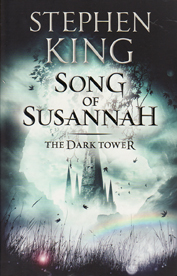

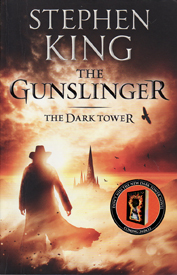
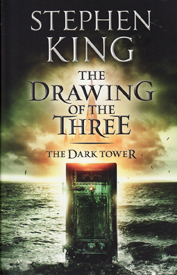
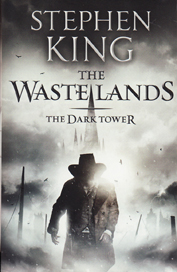
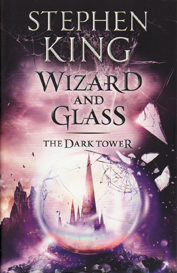
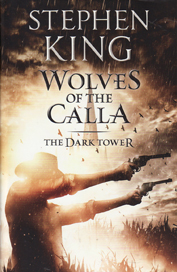
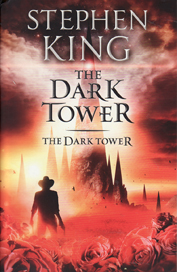
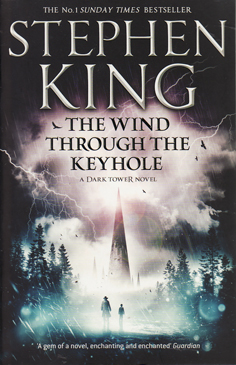

No one has commented yet. Be the first!